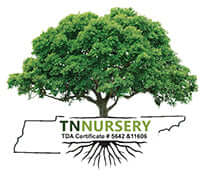
Cultivating Resilience
Share
Closed-Loop Gardening: A Sustainable Path to Growing Abundance
Closed-loop gardening represents a fundamental change in thinking that transforms how we interact with soil, food production, and Earth's biosystems. A closed-loop system fundamentally operates by replicating nature's perpetual cycles of growth followed by decay and subsequent regeneration. Previously discarded waste materials become essential in these systems to power the following season's harvest while transforming gardening into a sustainable, low-impact food production practice. Closed-loop gardeners avoid store-bought fertilizers and water depletion by finding creative methods to ensure resource circulation. The method rejuvenates the land while maintaining biodiversity, leading to more substantial plant growth. Closed-loop gardening is a sustainable and resilient solution to climate change and resource shortages.
Conventional gardens rely on chemical fertilizers to add nutrients, but these substances get washed away by rain, resulting in soil depletion and waterway pollution. Closed-loop gardening resolves this problem by developing a small-scale ecosystem that recycles resources continuously. Composting kitchen scraps enables soil rejuvenation. Gardeners collect rainwater to lessen their dependence on municipal water systems. Decomposing leaves and grass clippings with spent plant material enhances soil structure and nutrient content as they return to the Earth. Gardeners who utilize existing resources minimize their environmental footprint and gain access to more nutrient-rich produce. The success of this method depends on patience, careful observation, and flexibility to match nature's patterns. The goal is to establish ongoing communication with the land to develop better practices through experience with both triumphs and setbacks.
Understanding the Closed-Loop System
A closed-loop garden initially looks like any typical thriving garden filled with tomatoes, lettuce, herbs, and flowers. Management practices distinguish a closed-loop garden from other types of green spaces. Closed-loop gardeners convert organic waste into compost or worm feed, allowing nutrients to cycle back into the soil. The "soil food web" describes how microorganisms, decomposers, and insects collaborate to decompose organic matter. The breakdown process releases essential nutrients that plants require for growth. The soil quality improves because its water retention capacity increases while plants receive the necessary nutrients to flourish.
Water management is a fundamental component of the closed-loop system. Gardeners can capture natural rainfall with rain barrels and other collection systems to maintain their gardens during periods without rain. This approach preserves valuable water supplies while providing plants with chlorine-free water, benefiting soil microbes by maintaining a gentler environment. The flourishing relationship between plants and soil organisms sustains the loop, which holds an ecosystem balance that depends less on external resources. A cyclical gardening method develops resilience in gardens over time, allowing them to resist pests and diseases with minimal human intervention. Biodiversity soil that supports many life forms delivers natural defenses against pests and diseases, reducing chemical pesticide and fungicide requirements.

Key Components for Success
The foundation of a thriving closed-loop garden lies in its rich living soil. Gardeners usually start by enhancing soil fertility through composting before planting because they also utilize cover crops and well-aged manure. Building healthy soil at the start establishes a strong base for the whole garden. Organic matter in soil enhances moisture absorption and gives plant roots straightforward nutrient access while supporting disease-fighting organisms. Soil nutrients diminish over time unless they receive replenishment, and this necessity positions composting as a vital aspect of closed-loop systems.
Composting converts kitchen scraps and yard waste into a dark, nutrient-rich substance through the breakdown of organic materials. Gardeners who manage compost piles containing balanced nitrogen-rich greens with carbon-rich browns produce continuous soil enhancement materials. Compost application in gardens enhances soil structure, improving nutrient quality and water retention. Compost application brings beneficial microbes that serve as essential unseen workers in the garden. These microscopic organisms break down complex substances into absorbable plant nutrients and promote healthy root development while defending against harmful pathogens.
Water conservation is another essential component. Rain barrels placed beneath gutter spouts and runoff directed to bioswales and permeable surfaces enable water capture before it disappears. The smallest city balcony setup can take advantage of simple water collection systems. This approach shows careful recognition of water's inherent value. Regions with brief rainy seasons can decrease their dependence on municipal water supplies yearly by maximizing precipitation capture. The practice brings gardeners into contact with local weather conditions while promoting gratitude for essential rainfall.
Embracing the Future with Closed-Loop Gardens
Closed-loop gardening systems can work with various environmental conditions and spaces of different sizes. Limited-space urban gardeners can utilize vertical gardens, container gardens, or small raised beds to follow composting and recycling resource principles. Suburban and rural gardeners can implement more advanced composting systems while expanding water catchment infrastructure and incorporating small livestock into their gardening practices. Natural cycles enable them to produce food for their families while developing flourishing environments for pollinators and beneficial insects.
The accelerating global population makes sustainable food production an increasingly critical priority. Closed-loop gardening offers a localized solution. Local resource generation and recycling minimizes carbon emissions from long-distance produce transportation while removing the packaging waste typical of purchased store food. Regenerative methods benefit local ecosystems while simultaneously nurturing pollinator populations and promoting biodiversity. Anyone practicing closed-loop gardening joins a broad movement that reconnects people with nature through its teachings.
The practice of closed-loop gardening requires us to consider the type of plants we grow and the methods we use to produce them. This approach teaches us to appreciate soil life, understand water's worth, and recognize how living things are connected. This thoughtful system ensures that resources are fully utilized and every cycle stage, from seed to compost, contributes to garden health. Closed-loop gardening represents nature's ingenuity while demonstrating human innovation through sustainable practices. Creativity combined with patience and respect for Earth's resources enables us to produce abundance, which benefits future generations by preserving our planet.
